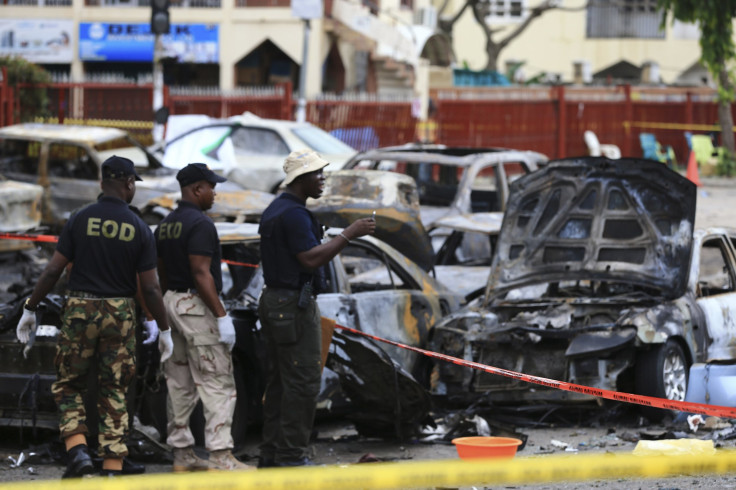Nigeria’s Military Says It Killed 53 Islamist Boko Haram Fighters

(Reuters) -- Nigeria’s military said Saturday it killed 53 fighters from the Islamist Boko Haram group when it repelled an attack on a military base in the northeastern Nigerian town of Damboa.
Maj. Gen. Chris Olukolade said in a statement that five soldiers and a senior military officer had also been killed in an exchange of fire on Friday night. The military often reports high casualty figures for the rebels and relatively low ones on its own side. It is usually not possible to verify these reports independently.
Earlier, police said insurgents had attacked the Damboa base, in the northeasterly Borno state, with rocket-propelled grenades. A security source said the raid was a revenge mission after dozens of Boko Haram militants were killed in an air and ground attack on two of their camps in the Yejiwa and Alagarno areas.
In a separate incident, also on Friday, a suicide bomber targeting worshippers at a mosque in a remote village in the village of Konduga in northeast Nigeria killed five people and wounded dozens, a security source said Saturday, in an area where Islamist insurgents are mounting attacks almost daily.
The source, who declined to be named, said Muslims in the village were observing Friday prayers when a pickup truck approached.
A local vigilante group stopped the truck to inspect it and the bomber then detonated the bomb a few yards from the mosque, he said. There was no immediate claim of responsibility, but Boko Haram was likely to be the prime suspect.
‘Suddenly It Exploded’
Witness Mohammadu Sheriff said he had seen the vigilantes conducting checks on a pickup van carrying firewood. “Suddenly it exploded,” he told Reuters by phone. “It would have been more devastating if the bomber had succeeded in driving near the mosque, which had over a thousand people in it.”
Boko Haram has killed many thousands since launching an uprising in 2009, and several hundred in the past two months, as it has stepped up a campaign against civilians in the northeastern reaches of the country.
The militants, who are fighting for an Islamic state in religiously mixed Nigeria, see all who do not subscribe to their austere brand of Sunni Islam as enemies, and often attack mosques as well as churches, especially ones they regard as too moderate.
They have become by far the biggest security threat to Nigeria -- Africa’s most populous country, largest economy and leading energy producer.
The kidnapping of more than 200 schoolgirls by Boko Haram from the village of Chibok in April made world headlines. Despite pledges of Western support and promises by President Goodluck Jonathan to free them, they remain in captivity.
A spate of bombings across the north and center of Nigeria in the past three months has also demonstrated the rebels’ ability to strike outside their northeastern stronghold.
(Reporting by Lanre Ola; Writing by Tim Cocks; Editing by Kevin Liffey)
© Copyright Thomson Reuters 2024. All rights reserved.











